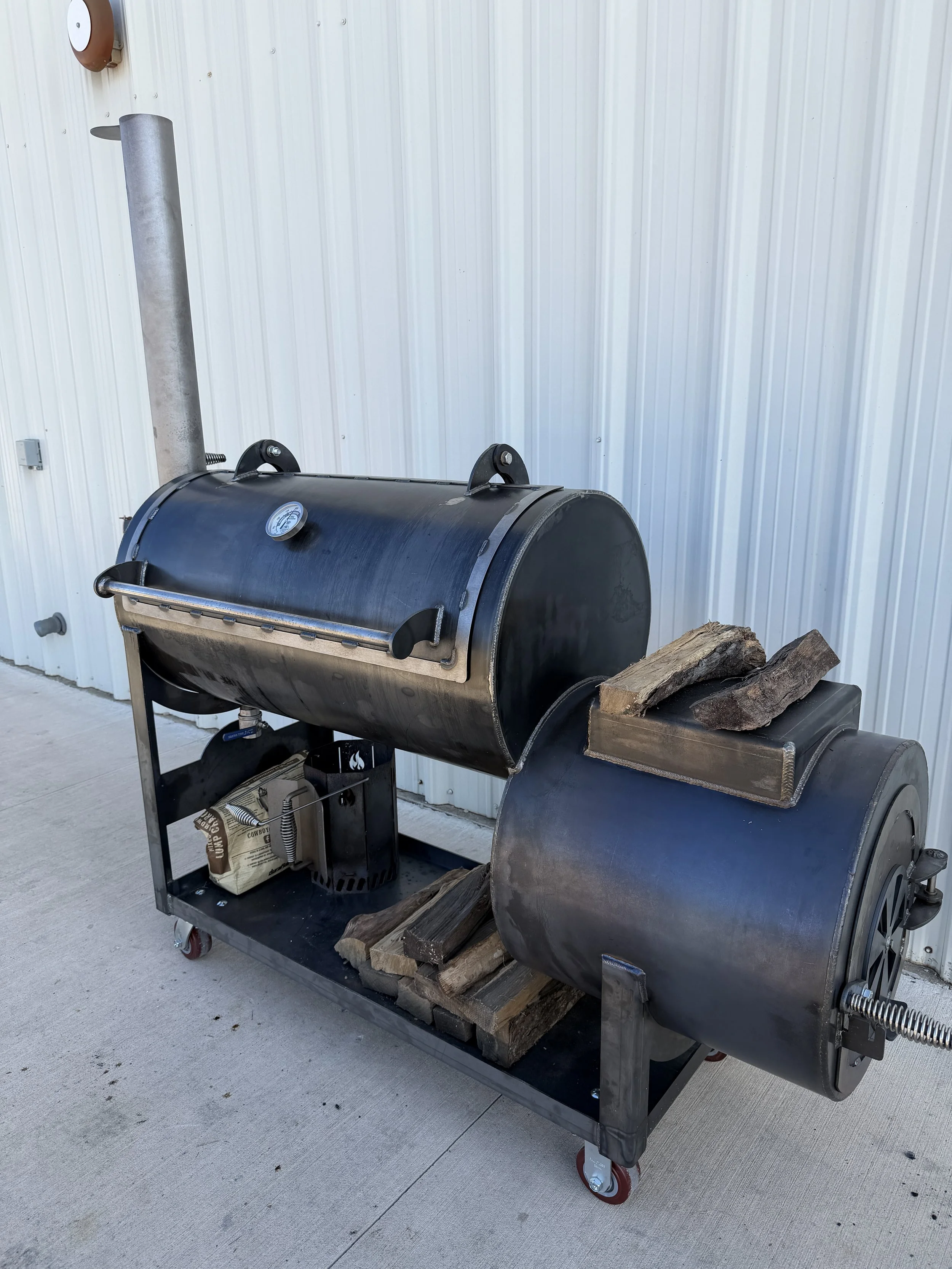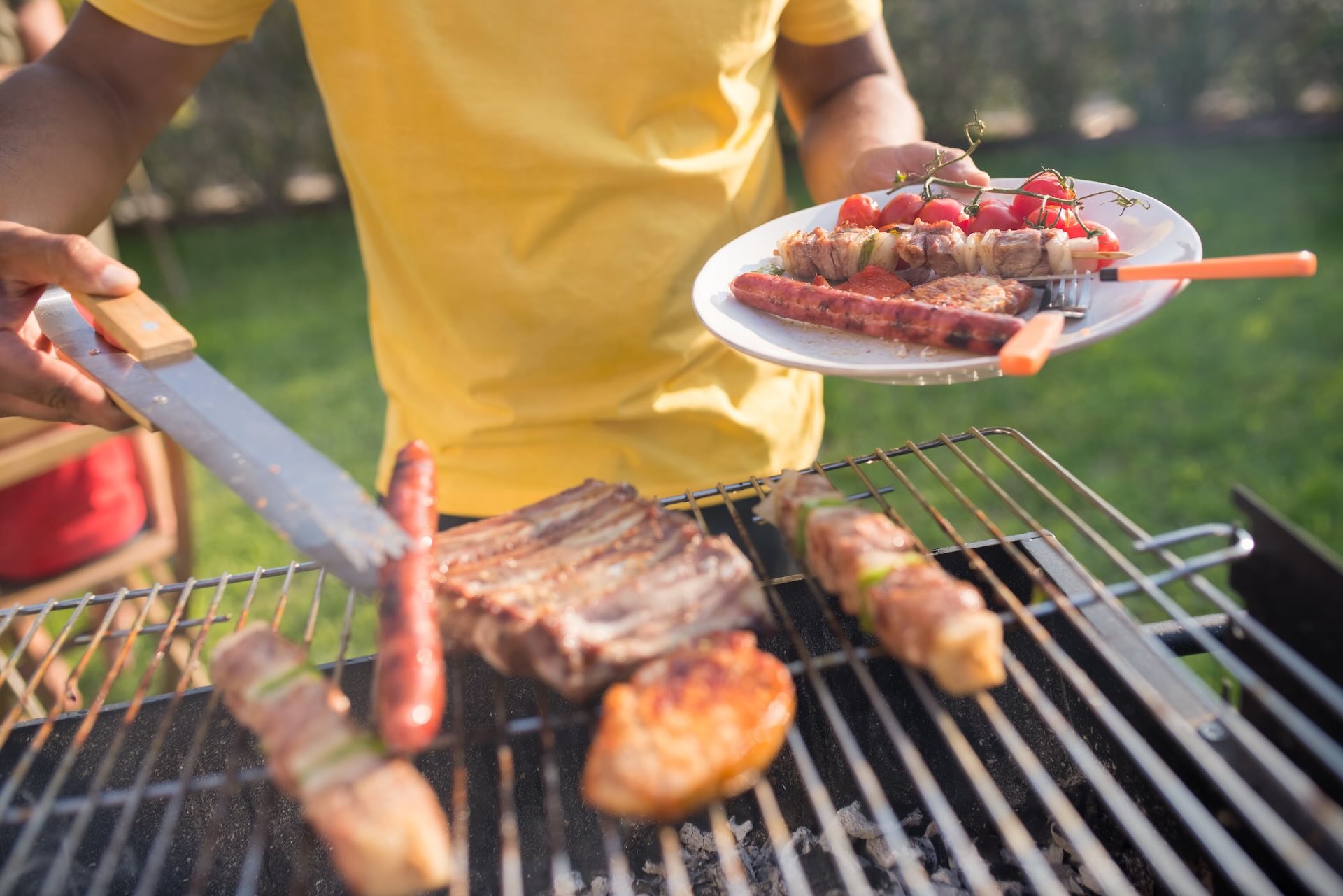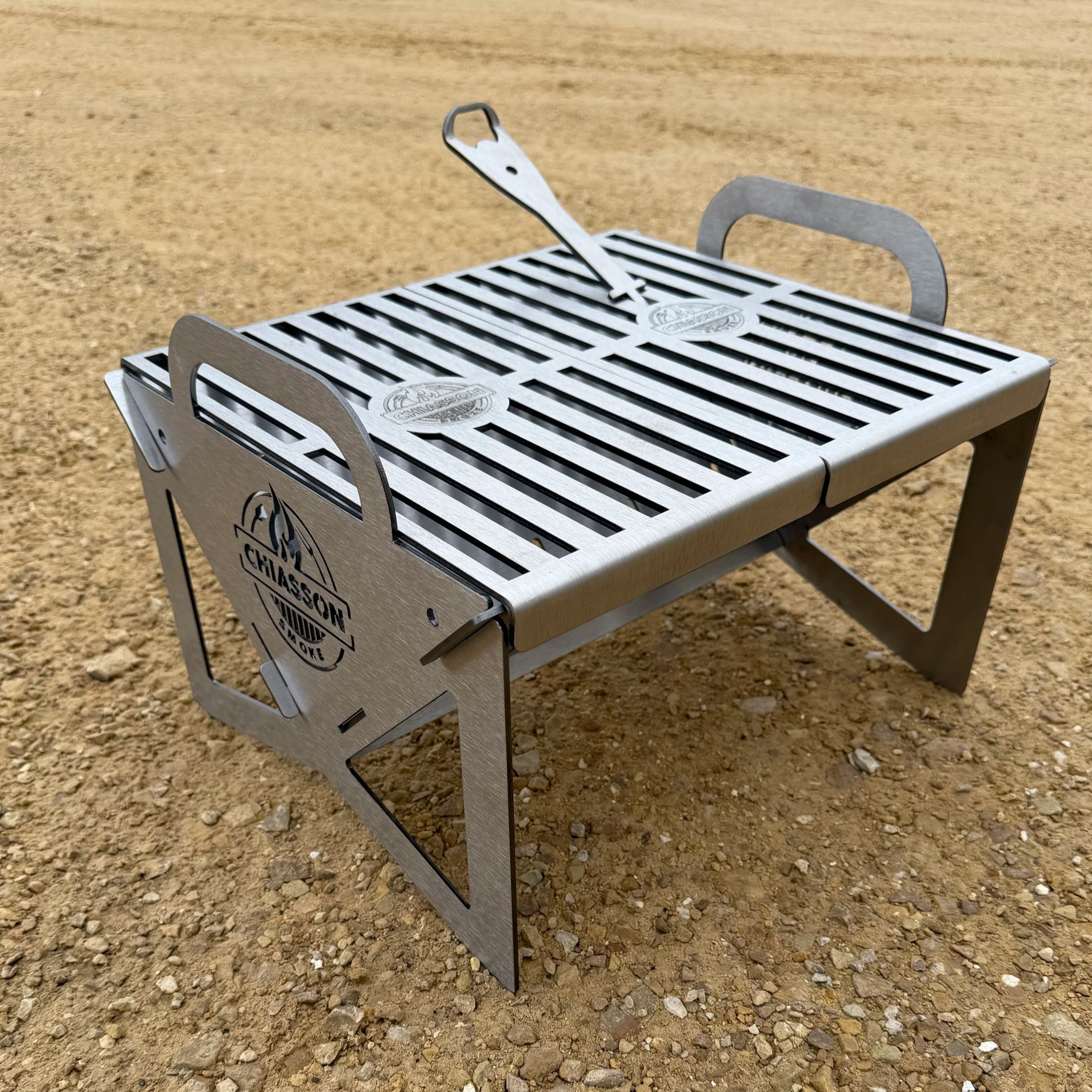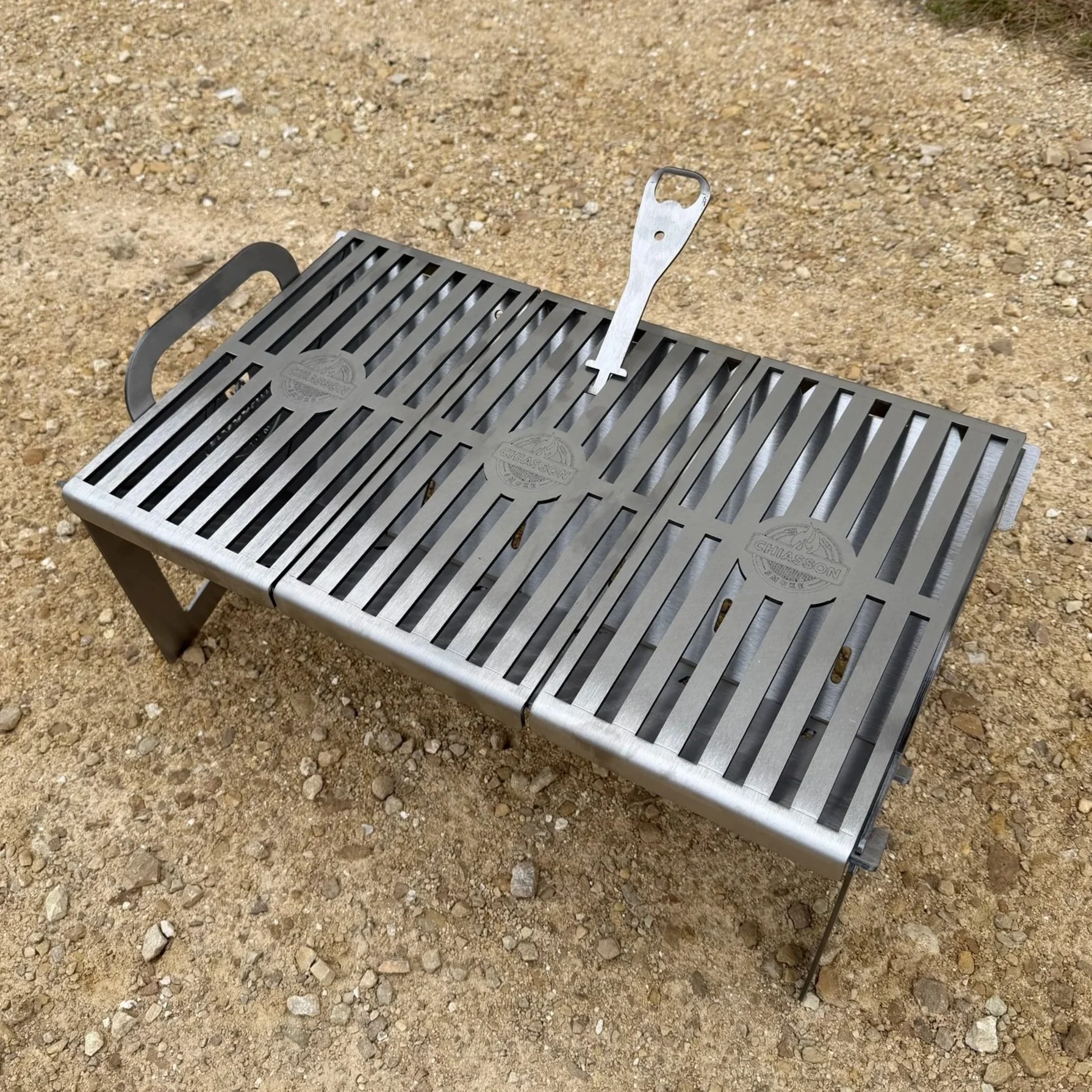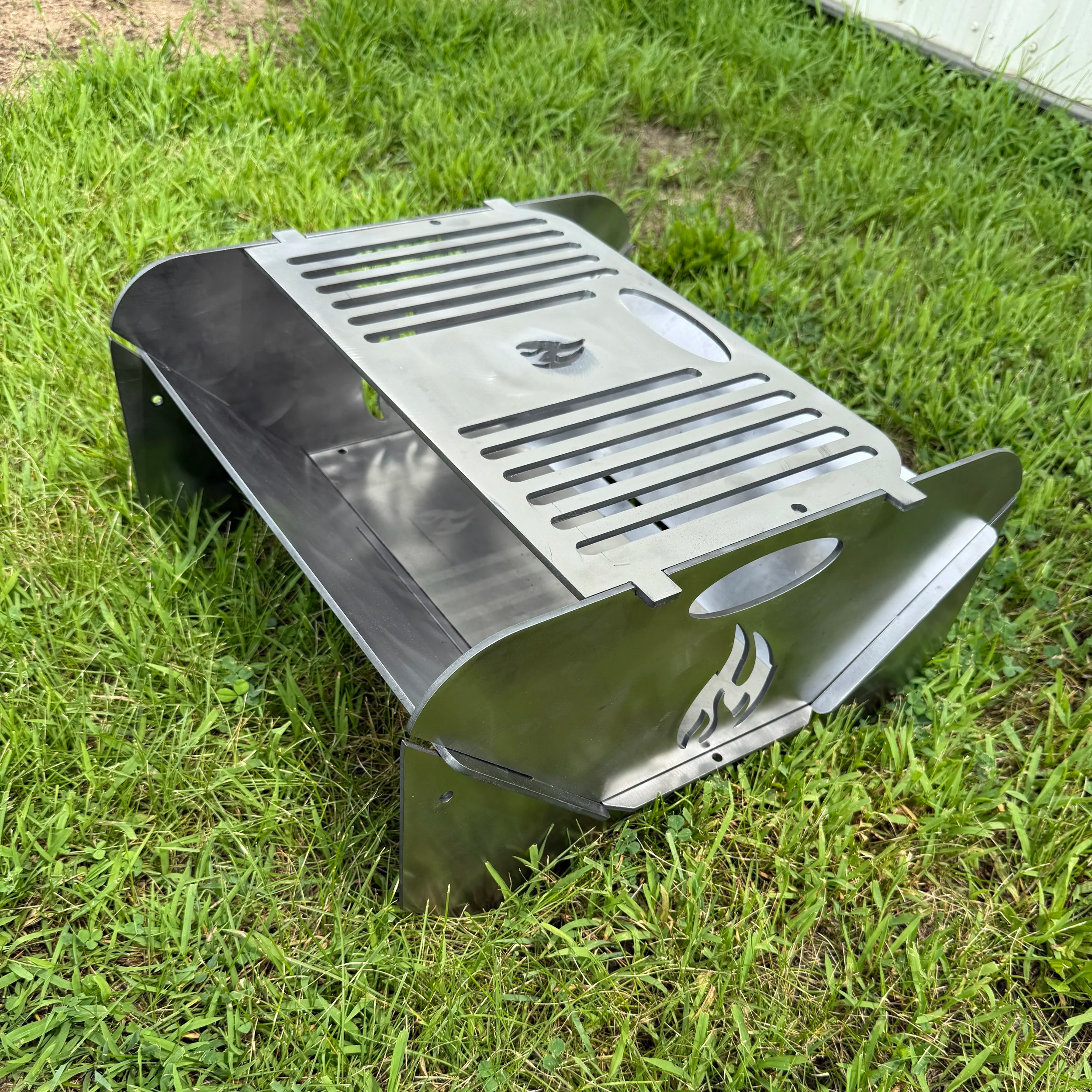Charcoal vs. Gas Grilling: The Ultimate Guide
When the weather warms up, there’s nothing better than stepping outside, firing up the grill, and cooking a meal in the open air. But if you’re shopping for a grill or trying to decide how to cook, one big question always comes up: should you go with charcoal or propane? Both options have their fans, and both come with their own strengths and weaknesses. Choosing between them isn’t always simple, but it’s definitely fun to think about.
Let’s break it down and see what makes each type of grilling special.
The Flavor Factor
The classic charcoal vs. propane argument always starts with taste. Charcoal lovers swear that the smoky, rich flavor you get from burning briquettes or lump charcoal is unbeatable. When the fat drips off your burgers, chicken, or steaks and sizzles on the hot coals, it creates that signature smoky bite you can’t quite recreate on a gas grill.
On the other hand, propane fans say that flavor isn’t everything. While gas may not add quite the same level of smokiness, it still cooks food evenly and lets the natural taste of the meat or veggies shine through. Plus, you can always add wood chips in a smoker box to get a little more smoky flavor if you want it. (That said, this article won’t go into detail about the difference between BBQ vs. grilling.)
At the end of the day, the flavor difference often comes down to personal preference. If you crave that backyard barbecue taste you grew up with, charcoal might win. If you like a cleaner, more straightforward flavor, propane may be your pick.
Speed and Convenience
Imagine you’ve just come home after a long day at work, and you’re hungry. With propane, you can be grilling in just a few minutes. All you need to do is turn the knob, push the igniter, and wait for the grill to heat up. Within 10 minutes, you’re ready to cook.
Charcoal, however, takes more time. You’ve got to light the coals, wait a bit for them to ash over, and then reorganize them to spread them out evenly. That process can take 20 to 30 minutes before you’re even ready to start cooking (though you can speed it up if you use a charcoal chimney). For some people, that’s part of the fun—the ritual of lighting the fire, tending to it, and waiting for it to get just right. For others, it’s just a hassle.
So if speed matters most, propane has the upper hand. But if you enjoy the slower pace and want to make the process itself part of the experience, charcoal grilling is hard to beat.
Temperature Control
Grilling isn’t just about fire—it’s about controlling that fire. Propane grills are famous for being easy to control. You can adjust the heat with a simple twist of a knob, much like using your kitchen stove. That means you can sear steaks on high heat, then turn things down to gently cook fish or veggies without worrying about burning them.
Charcoal requires more attention. You control the temperature by adjusting airflow with vents and by spreading the coals differently. Want high heat? Open the vents wide and pile the coals together. Want to lower the heat? Close the vents slightly and spread the coals out. You use a similar process if you’re controlling heat on a rocket stove. It’s more of an art than a science, and it takes practice. But many charcoal fans love that challenge and the sense of mastery that comes with it.
Cost of Cooking
Another factor worth considering is cost. Charcoal grills are usually cheaper to buy up front than propane grills. You can find a simple charcoal kettle grill for a low price, while a good propane grill often costs more because of its extra parts and burners.
But the costs don’t end with the grill itself. Charcoal adds up over time since you’ll need a fresh batch of briquettes or lump charcoal every time you cook. Propane, on the other hand, uses refillable tanks. While refills aren’t free, one tank can last for several grilling sessions.
If you grill often, propane may be cheaper in the long run. If you only grill once in a while, the cost difference may not matter much, and charcoal could end up being the more affordable choice overall.
Cleanup
No one loves cleaning the grill, but it has to be done. Propane grills are fairly simple to clean. After you’re done cooking, you just turn up the heat for a few minutes to burn off leftover bits of food, then brush the grates clean.
Charcoal, however, leaves behind ash that needs to be dumped and cleaned up. That can get messy, especially if you don’t have an easy ash catcher built into your grill. Plus, you’ll still need to brush the grates. For people who hate cleanup, propane is definitely easier.
But not matter which you use, it’s always a good idea to keep your outdoor space clean and tidy.
The Atmosphere
Grilling isn’t just about the food—it’s about the whole experience. Charcoal grilling feels more traditional and rustic. The crackle of the coals, the smoky smell, the glowing embers—it all adds to the atmosphere of an old-school cookout. For many people, this is what makes grilling special.
Propane grilling feels a bit more modern. It’s efficient, clean, and straightforward. While you don’t get the same campfire-like experience, you do get convenience and consistency, which can make entertaining easier when you’ve got a big group to feed.
Safety Considerations
Both types of grills can be safe if used properly, but they come with different risks. With propane, leaks are the main concern. You’ll need to check your hoses and connections from time to time to make sure gas isn’t escaping. With charcoal, the risk is more about sparks and hot embers. You’ll want to make sure the coals are fully out before disposing of them, and never leave the grill unattended while it’s lit.
No matter which type you use, it’s always smart to follow safety guidelines and keep your grill away from the house, deck railings, or anything flammable, and to have water or a fire extinguisher nearby just in case.
The Learning Curve
For beginners, propane is usually easier. It’s simple to start, simple to control, and forgiving if you’re just getting the hang of cooking outdoors. Charcoal has a steeper learning curve. You’ll need to figure out how to light it properly, how to control heat, and how to manage cooking times without burning your food.
But many grill masters will tell you that the challenge is part of what makes charcoal satisfying. Once you learn the ropes, you’ll feel proud every time you turn out a perfectly cooked steak or rack of ribs.
Versatility
Both propane and charcoal grills can cook a wide variety of foods, but they do it differently. Propane grills are great for quick weeknight dinners like burgers, chicken breasts, or skewers. They also make it easier to grill delicate foods like fish or veggies without too much hassle.
Charcoal grills shine when it comes to low-and-slow cooking. With the right setup, you can smoke ribs, brisket, or pulled pork for hours, infusing them with that deep smoky flavor. While propane grills can handle some smoking if you use wood chips, charcoal is usually better for traditional barbecue.
Environmental Impact
If you care about the environment, you might be curious about which option is greener. Propane burns more cleanly than charcoal, producing fewer emissions. Charcoal, especially when made from briquettes with additives, can release more carbon into the air.
That said, there are eco-friendly charcoal options, like lump charcoal made from natural hardwoods. Choosing those can lessen the impact if you prefer the charcoal experience.
Which One Should You Choose?
So, should you go with charcoal or propane? The answer depends on what matters most to you.
If flavor is king and you love the ritual of building a fire, charcoal might be your best bet.
If convenience, speed, and easy cleanup matter most, propane could be the smarter choice.
If cost is your main concern, think about how often you grill and factor in the price of charcoal vs. propane refills.
If you want the classic cookout atmosphere, charcoal delivers that smoky nostalgia.
If you want quick dinners after work, propane saves time and effort.
If you’re looking for a great time, a rocket stove is by far your best bet!
Some people even decide not to choose and keep both types of grills around, using each depending on the occasion.
Final Thoughts
Charcoal and propane grilling both have their place in backyards, campgrounds, and patios across the country. Neither is “better” than the other—it all comes down to your personal taste, lifestyle, and priorities. The good news is, no matter which one you choose, you’ll still get to enjoy the simple pleasure of cooking outdoors and sharing good food with friends and family.
So fire up the grill—whichever kind you prefer—and enjoy the sizzle, the smell, and the joy of eating something made with fire and a little bit of patience. Because at the end of the day, the real winner in the charcoal vs. propane debate is anyone who gets to sit down and enjoy the meal.




